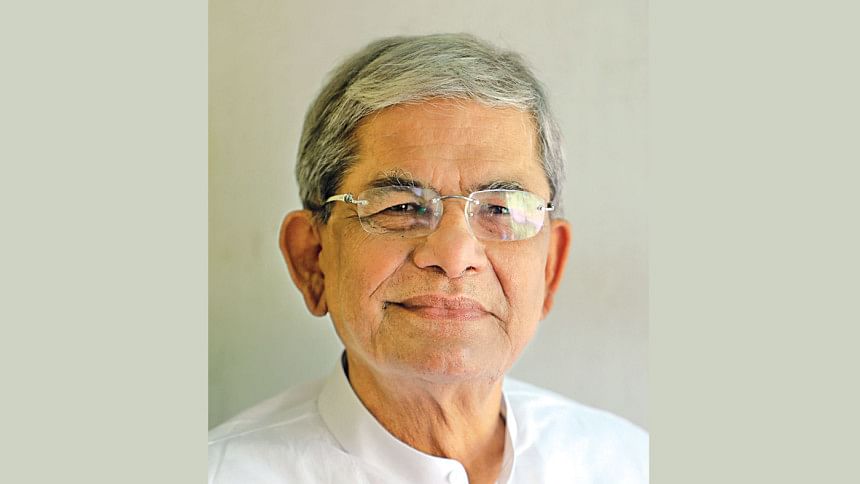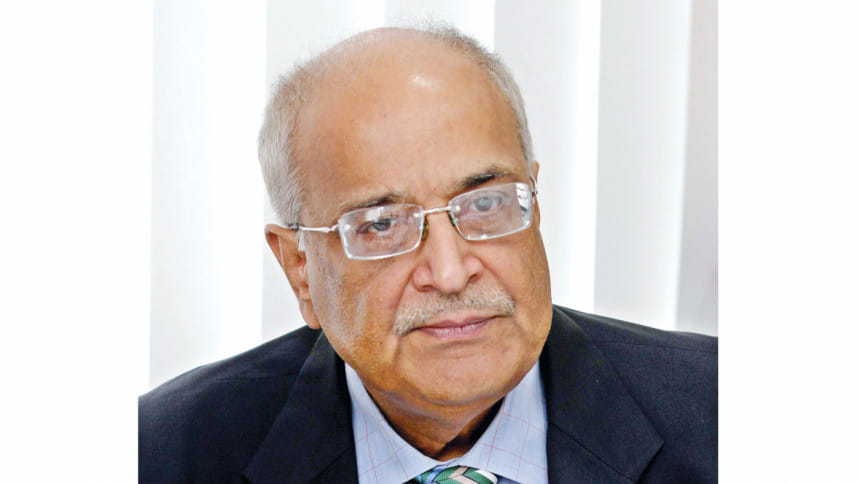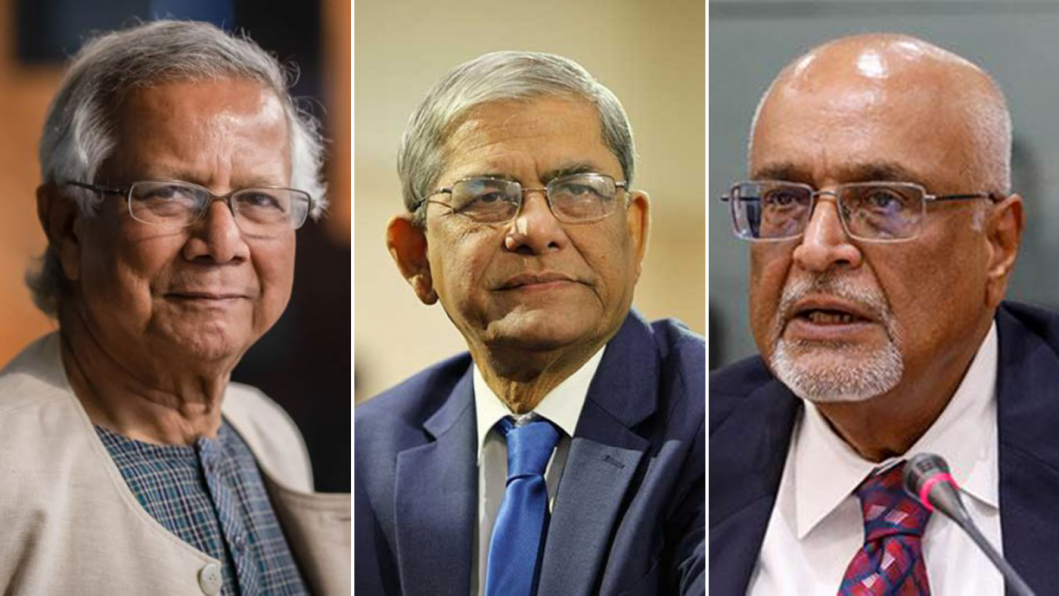Consensus key to reforms, election
Chief Adviser Professor Muhammad Yunus yesterday said reforms without consensus and elections without reforms would not be able to take Bangladesh forward.
“We need consensus to make reforms. There is no other way,” he said in his address to a national dialogue on unity, reform, and election.
In his video message, Yunus urged citizens, political parties and civil society members to join the reform process with resolve.
The two-day event is being organised by Forum for Bangladesh Studies at the Krishibid Institution Bangladesh.
“The sacrifices of the martyrs of July [uprising] will not be meaningful unless we build a just society. Fascism led Bangladesh astray from all kinds of idealistic goals and took us into deep darkness. We are working to bring Bangladesh back on the path to equality, human dignity, and justice,” he said.
Referring to the three topics of discussion — unity, reform, and election — he said none of these would succeed without the other.
“Half a century after independence, we have created an extraordinary moment of opportunity through immense sacrifices. If we are unwilling or unable to seize this opportunity, future generations will not forgive us.

“Reform commissions will hold discussions with the government, which will take time. In our view, the more the time passes, the bigger the problems grow.”
“Unity is our core strength. The July uprising has empowered us on a historic scale. Over the past five months, this unity has grown even stronger. As the forces that oppose people’s uprising continuously try to divide us, our unity has grown stronger.”
Because of this unity, Bangladesh can now reach goals that appear to be unattainable. “This is our greatest opportunity. We must build an economy that ensures the equality of wealth and opportunity for all citizens.”
The state will be such that it makes identities such as minority or majority irrelevant. The identity as a citizen of Bangladesh will be enough, Yunus said.
As the video streaming suffered a technical glitch, Chief Adviser’s Press Wing later gave a written script of the address.
According to the script, Yunus said that preparations for reform and elections will continue simultaneously. Every citizen should participate in the reform while the Election Commission prepares for the election.
The 15 reform commissions will hand their reports to the government in January, he said.

“We must move towards elections. But before that, people need relief. Don’t mislead people favouring reforms. Attention must be given to these issues.”
Just because a commission makes a recommendation does not mean people must accept it. This is why a National Consensus Building Commission has been formed, he added.
Stating that the young people become eligible to vote at different ages in different countries, he said 17 was the right age for one to be eligible.
“I am not sure what the election reform commission will propose. If everyone agrees on the proposal and reaches a consensus, we will accept that.”
Addressing the event, Bangla Academy President Prof Abul Quasem Fazlul Huq emphasised that the next elections must be free and fair.
“We should leave past mistakes behind… and ensure judicial independence, establish rule of law, and improve education and health care,” he said.
Prof Mushtaq Husain Khan of the University of London said in the absence of unity on reforms and elections, the future would be bleak.
Mere changes to the laws and regulations are not enough. “Collective efforts are necessary to dismantle the monopolistic power structures. For this, political parties can play a significant role. If political parties fail to dismantle the informal power channels, they will not succeed,” he said.
Ali Riaz, head of the Constitution Reform Commission, said people were united on their demands for accountable governance, elections that reflect the people’s will, and the prevention of autocracy.
Administrative reforms alone are insufficient and a change in the political culture is equally necessary, he said.
While democracy is under threat globally, Bangladesh has upheld democratic principles by defeating a fascist ruler, he said, adding that the next election should be viewed as a tool to safeguard democracy, not a mere means to gain power.
Faruk Wasif, director general of the Press Institute of Bangladesh, moderated the programme.
FAMILIES OF JULY MARTYRS DEMAND JUSTICE
Those injured during the July uprising and families of those killed jointly inaugurated the event. They demanded the swift trial of those responsible for the casualties and the rehabilitation of the injured.
Abu Bakar Siddik, a Dhaka Polytechnic Institution student who got shot, accused some political parties of giving shelter to fascists.
Robiul Awal, whose brother Imam Hossain was shot dead at a demonstration, expressed doubts the killers would ever face justice. “Yes, we all want reforms and elections, but please focus on the trials,” he said.
Abul Hossain, whose son Shahriar Hassan got killed, said, “No one made the ultimate sacrifice for an election alone. Reforms should come first, then the election.”
Golam Rahman, also a father who lost his son, said he wondered if former prime minister Sheikh Hasina would face trial.
LondonGBDESK//



Comments are closed.